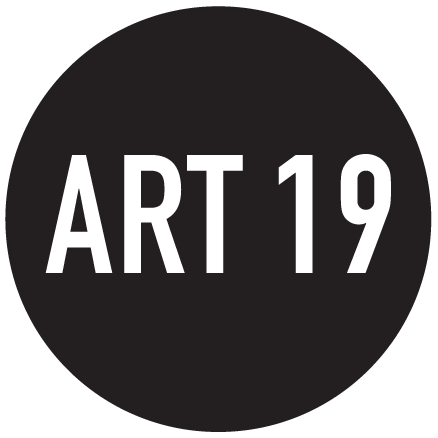The Guardian: Shilpa Gupta review – rousing reminder that free speech used to be a noble cause
Barbican Curve, London
With the words of dissidents pinned to walls, this thrilling new show lays bare the censoriousness of modern culture
Preserve the poetic voice … Untitled (Spoken Poem in a Bottle), part of Shilpa Gupta: Sun at Night. Photograph: Tim Whitby/Getty Images
When the Chinese dissident Liu Xia was under house arrest with state security guards posted at her front door, she wrote a passionate poem to her husband, Liu Xiaobo: “I’ll never give up the struggle for freedom from the oppressors’ jail, but I’ll be your willing prisoner for life.”
Shilpa Gupta has typed up these translated words on what looks to have been an old-fashioned typewriter. They are pinned to the wall beside her line drawing of the late Liu Xiaobo, who won the Nobel prize for his outspoken defence of human rights, was repeatedly imprisoned for challenging China’s authoritarian state, and died in custody in 2017. The following year the Chinese state allowed Liu Xia to leave for medical treatment in Germany, presumably to avoid a second outcry. Liu Xia’s moving poem of protest and love pulls you up. What a story! Where are all the plays and films about this extraordinary couple who told truth to power and spoke their love to one another?
Championing the free word … Shilpa Gupta: Sun at Night. Photograph: Tim Whitby/Getty Images
Hollywood may be too keen to stay friends with China to make biopics of dissidents, but Gupta is drawn to such lives. Her moving exhibition at the Barbican speaks up for a cause that seems almost old-fashioned: the free word.
If you are old enough to remember the Berlin Wall you may also remember when dissident writers were revered and free speech was a noble cause. That started to change when Salman Rushdie, who like Gupta was born in Mumbai, faced death for his novel The Satanic Verses and was far from universally defended. Today, without a state such as China needing to do anything, many people find reasons to censor the words of others. Books get pulled, authors ostracised, in what is still officially the democratic west.
So Gupta’s art has something quietly heroic about it. She reminds us of the infinite preciousness of free expression. Poets and writers who have been imprisoned fill her imagination. “Whether they’ll shoot me at that point when chaos starts,” wonders another of her typescripts, “And I’ll press my trembling hands to the hole that was my heart…” These are the words of Irina Ratushinskaya, whose poetry got her sentenced to seven years in a Soviet hard labour camp in 1983. At the foot of her typed message, Gupta explains how it got out of the camp: “Scratched on soap, memorised, washed away. Then written on cigarette papers, smuggled outside the prison.”
Shilpa Gupta: Sun at Night.Photograph: © Tim Whitby / Getty Images
Gupta reminds you how shockingly recent this all is – Soviet camps were not something that just existed in Stalin’s time: poets were going to prison for their words in Communist Europe in the 1980s. Across the gallery is a sculpture that says it all, or rather doesn’t: a metal cast of the inside of a human mouth in which you can clearly see the shape of the palette and teeth but not the tongue. It is stopped. Silenced. This ugly chunk of metal looks like it could be a torture instrument specially made for imprisoned writers.
Another sculpture consists of corked bottles lined up in a vitrine, each labelled with a poem’s title. The piece is called Untitled (Spoken Poem in a Bottle). It deftly politicises Marcel Duchamp’s celebrated 50 cc of Paris Air: instead of jokily bottling the atmosphere, she sincerely insists these bottles preserve the poetic voice.
For words are sacred to Gupta. Didn’t she get the email that liberal humanism is dead? The biggest work here, Gupta’s low-lit, rhapsodically intoned sound installation called For, In Your Tongue, I Cannot Fit, feels almost nostalgic in its poetry of the human spirit.
A hundred typed fragments are speared on waist-high spikes in the prison-like darkness. Bare lightbulbs hang dimly above. There is an antiquated microphone above each spike. First there is silence. Then a single woman or man intones, declaims, whispers or sings a phrase. More voices repeat it, a chorus gathers strength.
Poetry of the human spirit … For, In Your Tongue, I Cannot Fit Photograph: Tim P Whitby/Getty Images for Barbican Art Gallery
The same texts that Gupta prints up elsewhere in the show are voiced here, among many more. Each was written by an imprisoned writer, today or long ago, in a conversation across time and place. Gupta takes up these isolated poems of the confined and the brutalised, and lends them a chorus of solidarity. It is like Wordsworth’s poem to the imprisoned Toussaint L’Ouverture: “There’s not a breathing of the common wind / That will forget thee; thou hast great allies…”
But who does she think she’s kidding? A chorus of support for lonely brave voices? It doesn’t seem likely. Today’s social media chorus is more likely to bay for an offending author’s blood. Gupta’s project matters all the more, then, for its rarity. All she needs is a bit more bite: perhaps to celebrate voices that are provocative right here and now. As it is, her defence of freedom is slightly lacking freedom’s danger. It is true and timely nonetheless.
Shilpa Gupta: Sun at Night is on at the Barbican Curve, London, until 6 February 2022
Article published on www.theguardian.com.




